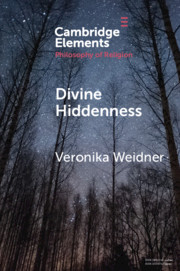Element contents
Divine Hiddenness
Published online by Cambridge University Press: 13 April 2021
Summary
- Type
- Element
- Information
- Online ISBN: 9781108612647Publisher: Cambridge University PressPrint publication: 27 May 2021
References
- 12
- Cited by

